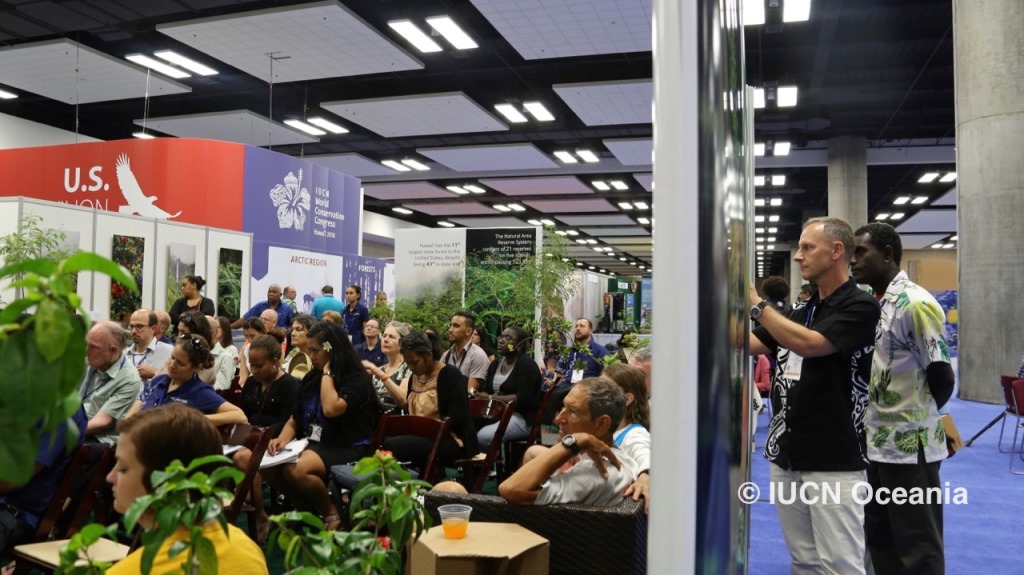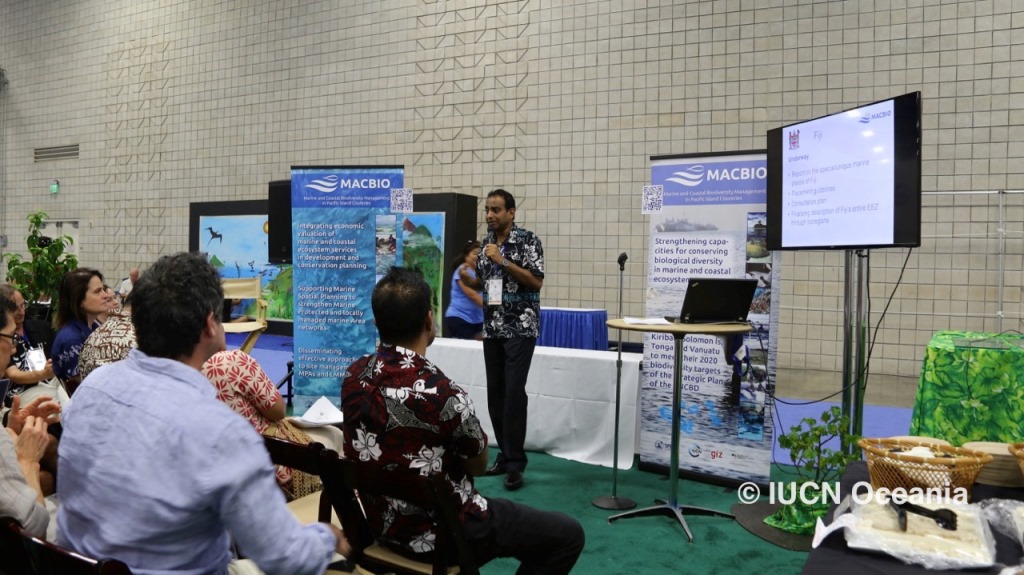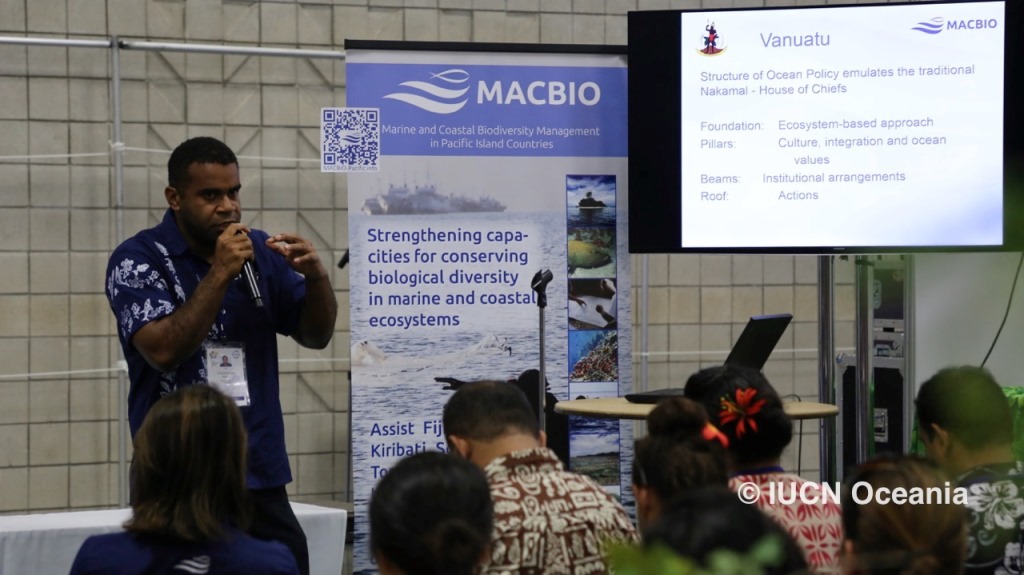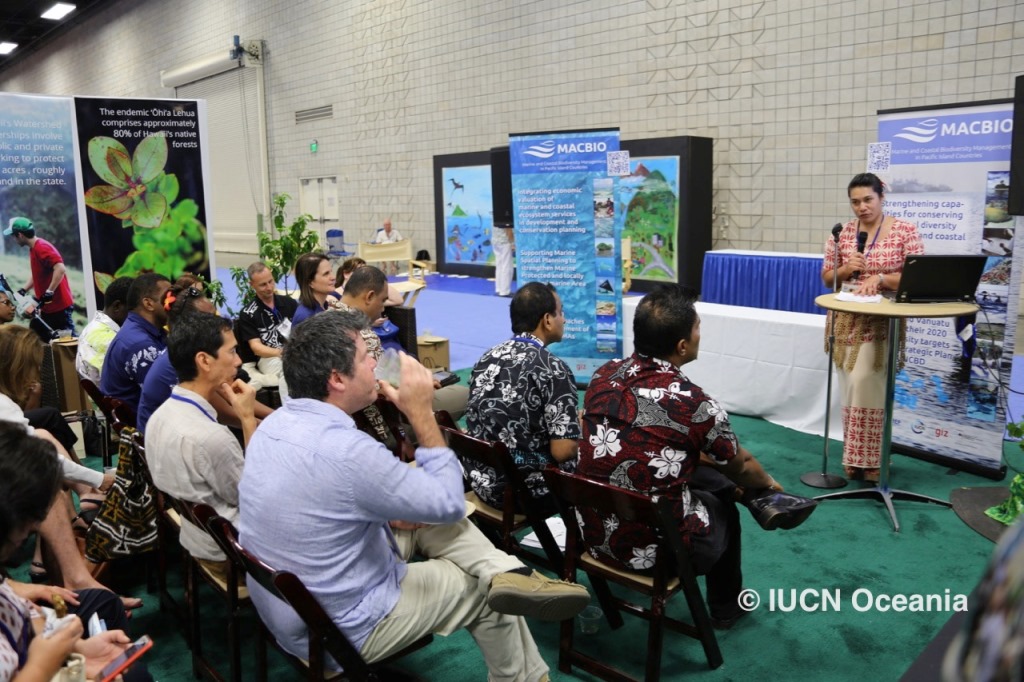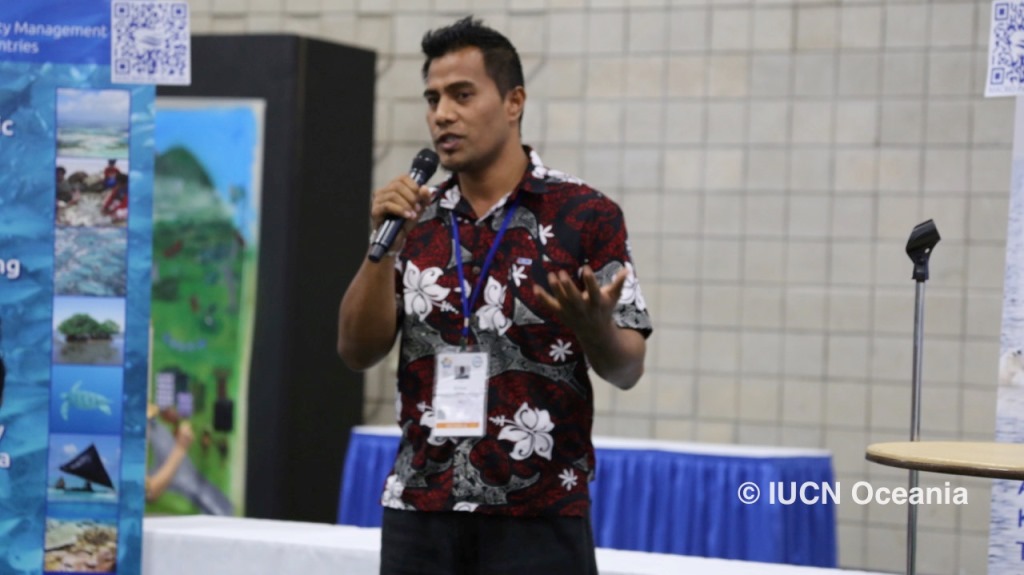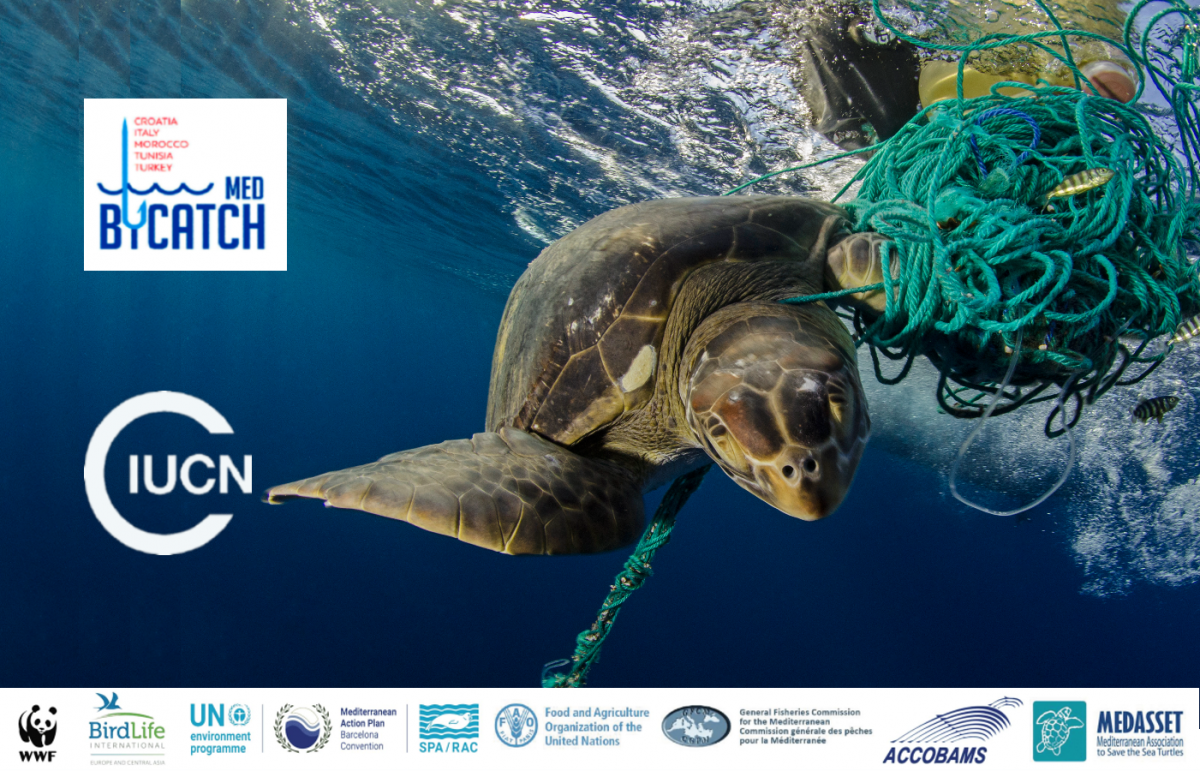Pacific Islands show global leadership in oceans
The Pacific islands are united by their relationship with the world’s largest ocean – and by the global threat of the climate crisis which brings with it rising sea levels, saltwater intrusion, coastal inundation, increases in sea surface temperature and ocean acidification. This, plus localized threats such as overfishing, pollution, destructive fishing, coastal run-off, all means that island communities find their environments, economies, and in some cases, their very existence at risk.
There is a strong political will to transform the management of ocean spaces. This is being brought into action by ocean-specific policies and planning, such as in Fiji, Tonga, Vanuatu and the Solomon Islands. While valuing, planning and effectively managing the oceans is no easy task, these countries are taking necessary steps to ensure the sustainable use of ocean spaces for the benefit of all.
Fiji, Solomon Islands, Tonga and Vanuatu took to the stage at the IUCN World Conservation Congress – the world’s largest and most inclusive environmental decision-making forum – in Honolulu, Hawai`i from 1 to 10 September 2016 to highlight the global leadership they are showing in managing their oceans.
Dr Melchior Mataki, Permanent Secretary, Solomon Islands Ministry of Environment, Climate Change, Disaster Management and Meteorology, outlined how the country is working towards more integrated ocean planning and management. “Different parts of the government need to coordinate better, along all dimensions, with each other.” The Solomon Islands is initiating cross-sectoral legal, institutional, compliance, capacity building and marine spatial planning activities that are needed to ensure their ocean future.
Mr Joshua Wycliffe, Permanent Secretary, Fiji’s Ministry of Local Government, Housing and Environment, informed those present of the workplan that is in place that will ensure that Fiji implements 30% marine protected areas by 2020. He provided information on work conducted to date (including on date collation, an MPA typology and legal analysis) and the next steps in the process. An inter-agency and cross-sectoral technical working group has been established to progress the workplan.
Ms Ana Fekau, Integrated Island Biodiversity Project Coordinator, GEF Pacific Alliance for Sustainability –from Tonga’s Department of Environment, told the audience of the ocean-wide spatial planning that Tonga is doing. “The Government is working across ministries to ensure a sustainable ocean future for the country. They reviewed the many and conflicting uses of their oceans and decided that a more holistic and integrated approach was needed. They are aiming for a Marine Spatial Plan for the seas of Tonga by 2020.”
Mr Vatu Molisa, Marine and Coastal Biodiversity Management in Pacific Island Countries (MACBIO) Project Liaison Officer, from Vanuatu’s Department of Environment, was applauded when he announced that the Vanuatu Council of Ministers had just, the week before, passed the inaugural Ocean Policy for the country. This is a first amongst Pacific Island Countries and brings together sectoral planning and management for Vanuatu’s ocean as well as novel, cross sectoral management initiatives, such as ocean-wide spatial planning. Spatial planning will be used to promote particular uses in some areas, limit other uses in other areas, separate conflicting uses and protect biodiversity.
(See also: http://macbio-pacific.info/2016/09/15/valuing-planning-oceans-world-conservation-congress/
This work is supported by the Marine and Coastal Biodiversity Management Project MACBIO, funded by the German Federal Ministry of Environment. It is being implemented by GIZ with technical support from IUCN-Oceania and in close collaboration with SPREP.)
